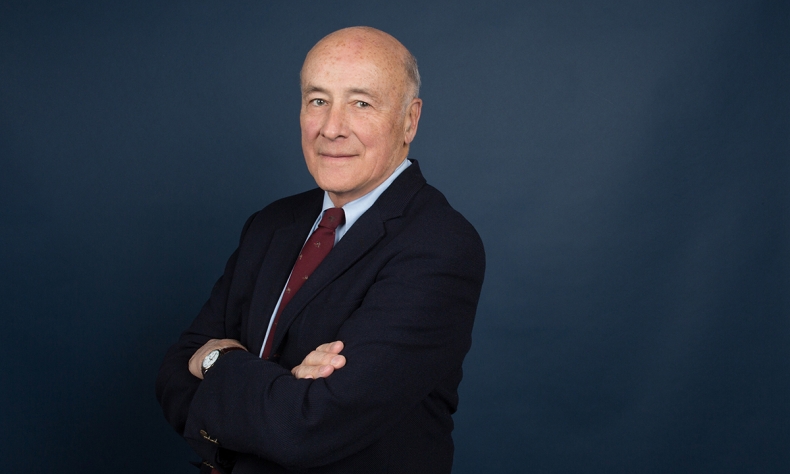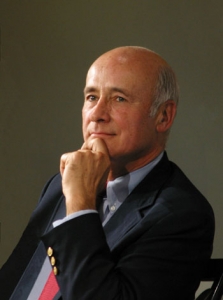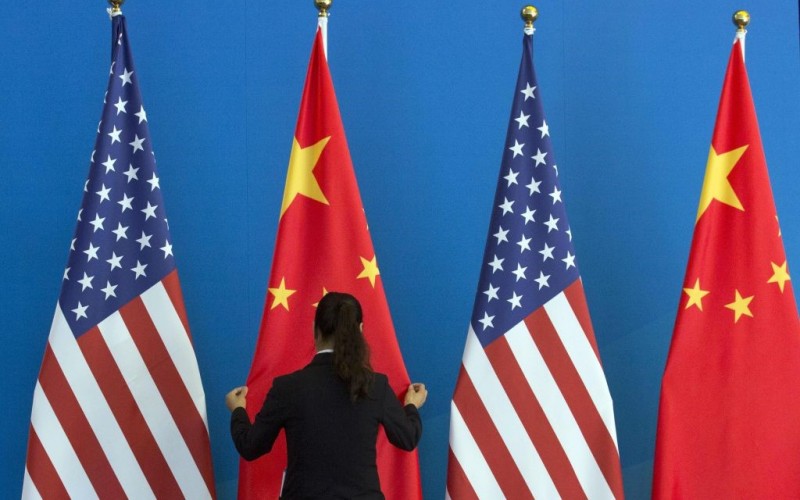Joseph Nye:China and U.S. Should Be Cooperative Rivalry

What worries me is that when you talk about the strategic adversaries, you’re thinking only about the negative side and what I think is we have to get people to think also at the same time about the positive side.
Joseph Nye is a famous American political scholar, who served as Assistant Secretary of State of President Carter and Assistant Secretary of Defense in the Clinton Administration. He proposed the concept of soft power and smart power, and together with scholar Robert Keohane, he created the theory of complex interdependence, which is a fundamental characteristic of the neoliberal school in American international relations theory.
On January 10, China Focus conducted an interview with Joseph Nye.
China Focus:What do you think about the current state of U.S.-China relation?
Joseph Nye: Well, we’re going through a difficult time the U.S.-China relations. People focus very much on the trading wars and the question of will we find some agreement on these trade issues. But it’s actually deeper than that. If Hillary Clinton had won, there would still be difficulties. In other words, it’s not just Donald Trump who is the problem. Trump has made things worse, but there’s a feeling among both Republicans and Democrats in Washington that China has not played fair. That there’s not been real reciprocity. So that would have been there before Trump. Trump essentially is like a man who came along, and there was a fire burning. And he poured gasoline on the fire. So it’s flaring up now, but the fire would have been there anyway.
China Focus: And some people say that China and the U.S. are locked in a trade war, a cold war, and some people even say that the two countries are moving towards a real war. Do you think the two countries have the courage and the wisdom to get out of this?
Joseph Nye: I don’t think China and U.S. are destined for war. I don’t think we’re even destined for cold war. If you think back on the Cold War between the U.S. and the Soviet Union, you must realize that there was almost no trade and no social relations. With China, we have obviously massive trade. And we have 370,000 Chinese students in the U.S., and billions of tourists going in both directions. This is not like the Cold War. And we should not use the language of cold war. I’ve called it a cooperative rivalry.
Because I want people to realize that even when there is a rivalry, there can be cooperation. And it is essential that we manage the U.S.-China relationship to have the cooperation part. There’s no way that with climate change, for example, or financial stability, or dealing with pandemics, no way can the U.S. solve that problem without working with China. No way can China solve that problem without working with the U.S.. So as we think about this. Yes, there will be tension, but there has to be cooperation.
What worries me is that when you talk about the strategic adversaries, you’re thinking only about the negative side and what I think is we have to get people to think also at the same time about the positive side. That’s why I suggest using a name like strategic cooperation or cooperative rivalry as a way to make sure that we focus on both aspects of the relationship.
China Focus: Given President Trump’s America First Policy and the U.S. withdraw from international agreements, etc., what is your assessment of America’s soft power in the past two years? Was it reduced by the policies of the Trump administration?
Joseph Nye: I think President Trump is definitely reduced American soft power and you can see this by public opinion polls. When you have a slogan like America first, it makes everybody else feels second. So, it may be a good slogan for American domestic opinion. It’s a very bad slogan for international opinion and so I think you could say that Trump has reduced American soft power. There’s also an effort by a London consultancy called Portland to do with index of what they call Soft Power 30 or the soft power of thirty countries and the US was ranked first a couple of years ago. It’s now falling on the third or fourth place since president Trump’s election.
China Focus: Do you still believe that the leadership of the US is threatened more by the rise of populist nationalism at home than the rise of new powers abroad?
Joseph Nye: I think the US is threatened more by the rise of domestic populism than by the rise of China. I think that it’s essential that the United States maintain attitudes of international cooperation and I think President Trump has undercut those attitudes of international cooperation. But if you look at the recent opinion polls in the United States, it shows 70 percent of people want more international cooperation. So, I don’t think Trump’s attitudes represent the wave of the future.
China Focus: How do you view China’s Belt and Road initiative? In your opinion why is China proposing this initiative?
Joseph Nye: Well, the Belt and Road has many different aspects. One aspect of it which is good is to help other countries develop infrastructure which can be used by everybody. Another aspect of it, which is self-serving, is to provide markets for Chinese concrete and steel makers to export. Different aspects of Belt and Road have different meanings to different countries.
China Focus: What do you think of president Xi’s concept of building a community of a shared future of mankind?
Joseph Nye: Well, I think that is a very good concept because if you just take again this issue of climate change, where President Trump made a big mistake withdrawing the United States from the Paris Climate Agreements, but climate change doesn’t obey the laws of politics against the law of physics. And over time, climate change is going to damage China. It is going to damage the U.S., and it’s essential that we find ways to cooperate with each other and with other countries. I think President Xi’s slogan is a way of illustrating that type of cooperation. It’s something which is going to be essential for all mankind. I sometimes say that we have to learn not about power over others but power with others.
 Facebook
Facebook
 Twitter
Twitter
 Linkedin
Linkedin
 Google +
Google +












